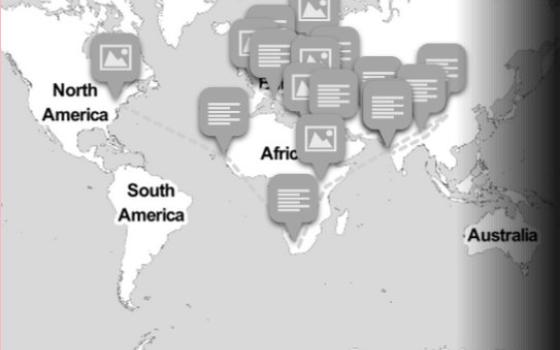It’s been nearly a month since two masked gunmen killed 12 people and injured 11 in the Paris office of Charlie Hebdo, a French satirical paper. Witnesses say that as the gunmen attacked, they shouted “We have avenged the Prophet Muhammad” and “God is great” in Arabic.
Because Charlie Hebdo is known for its cartoons poking fun at Islam (among other things), the attack immediately sparked an international discussion about civil rights, namely free speech and freedom of religion. Should vulgar and offensive speech be protected? Should other publications disseminate Charlie Hebdo’s Muhammad cartoons in solidarity?
Even Pope Francis weighed in, offering Mass for the victims and condemning violence in the name of God but later saying, “One cannot provoke, one cannot insult other people’s faith; one cannot make fun of faith.”
In December, two sociologists published a study about religious freedom that was summarized by the Association of Religion Data Archives (the full report can be purchased here), and found that liberty is best protected by independent courts and “civility.” More specifically, the report found that:
- Although nine out of 10 nations promise religious freedom, six in seven countries also have laws restricting religious practice. Only countries with an independent court system were consistently found to have fewer religious restrictions, and these court systems were the only positive predictor of more religious freedom.
- Countries that are predominantly Muslim, like Saudi Arabia and Iran, were the least religiously tolerant, but this was not related to Islam itself. Researchers found that the percentage of Muslims within a nation’s population was not significant in predicting religious freedom, again suggesting that the relationship between religion and the state is key in promoting religious freedom.
- In fact, researchers found that social movements driven by “the cultural elite” and clerical edicts often promote restrictions on religious freedom. Case in point: in a related study, four out of five French people said they supported religious freedom, but half of them also said practice of Islam should be “severely restricted.”
This week’s map comes from Northwestern University’s Knight Lab and the Committee to Protect Journalists. Click on icons to learn more about Charlie Hebdo-related demonstrations around the world.

